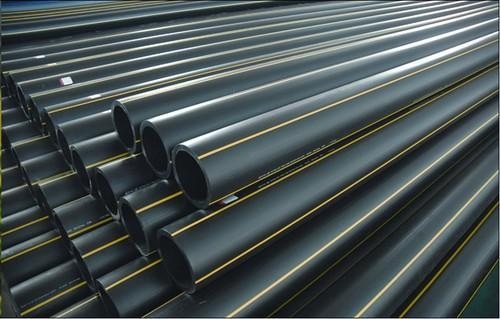HDPE pipe is a flexible plastic pipe that is used to transport fluids and gases. It is frequently utilised to replace older concrete or steel pipes used to transport water in any building. High-density polyethene or HDPE is a thermoplastic with a high impermeability factor and a strong molecular bond, making it ideal for high-pressure pipes.
Characteristics of HDPE pipes
- durable
- cost-effective
- corrosion-resistant
- non-toxic
- no leakage
Advantages of HDPE pipes
- Lightweight and Flexible
Polyethene pipes are available in both straight and coiled lengths. It is lightweight and does not require large lifting equipment since it is made of materials with roughly one-eighth the density of steel. It eliminates the need for fittings, works well in changing soils, and is earthquake-resistant. In addition, HDPE is resistant to the effects of freezing and allows for bending without the need for additional materials.
- Durable
HDPE pipe is a long-lasting and safe option as its estimated lifespan is around fifty years. In addition, they can withstand the effects of abrasive liquids, collisions and other chemical agents. The material is also deemed resistant to the chipping effect caused by the vortex formation during water flow.
- Reduced costs
Pipes made of high-density polyethene may be welded together to create seamless, leak-proof pipelines with fewer fittings. This results in significant labour and installation cost reductions.
The pipe is known for its extreme flexibility, endurance and low weight. HDPE pipe manufactures can be found throughout India with slight variations in their quality. These products are known for domestic, agricultural, commercial and industrial use cases. The HDPE pipelines are manufactured using a composite polymer known as high-density polyethene. These pipes solve many problems when it comes to irrigation systems for farmlands as well as gardening. It can even be used to organise electrical wiring and other cable management within the house walls, commercial buildings and multiplexes. They withstand temperatures ranging between 45°C and -45°C. Any temperature beyond 45°C can cause physical changes to the pipes, including deformation and elasticity. Although within the confinements of the temperature, it can withstand high pressure. Due to its natural elasticity, it can withstand bruises and bends. The HDPE pipes are also utilised for transferring gases across and fluids similar to water etc. These pipes can last for over fifty years, and their chemical composition makes them useful for high pressure-based fluids and gases circulation systems. For the use cases mentioned above, HDPE pipes are optimal as they have the right amount of thermal efficiency, endurance, toughness, flexibility, non-corrosiveness and other vital parameters that their alternatives cannot match. The composite polymers used in the manufacturing of these pipes are non-hazardous and can be implemented in transferring potable water for drinking, bathing, cooking, etc.
The expansion of two or more HDPE pipes can be made easily by welding. Welding, in this case, implies melting the two terminals and joining the two terminals together seamlessly to create a longer pipeline. These can be used for transmitting gases at longer distances because there are no pores, and they are completely leak-proof. The welding technique ensures no need for rubber seals between the joints for high-pressure transfer use cases. Furthermore, the welding ensures that the installation can be made trenchless and above ground. This is particularly good for many reasons, but most importantly, it is highly eco friendly and has zero intrusions below ground. The inner walls are not rimmed or webbed, and therefore, it is very smooth and allows solids, fluids and gases to flow in a frictionless environment. HDPE pipes are available in sizes ranging between 20 mm and 110 mm and are available for distribution throughout the marketplace as it is mass-produced.
These pipes are one of the best alternatives to the older metal pipes because they are durable and cost less than the metal pipes. They can be considered if one is looking for reliable options for installation at their homes.
